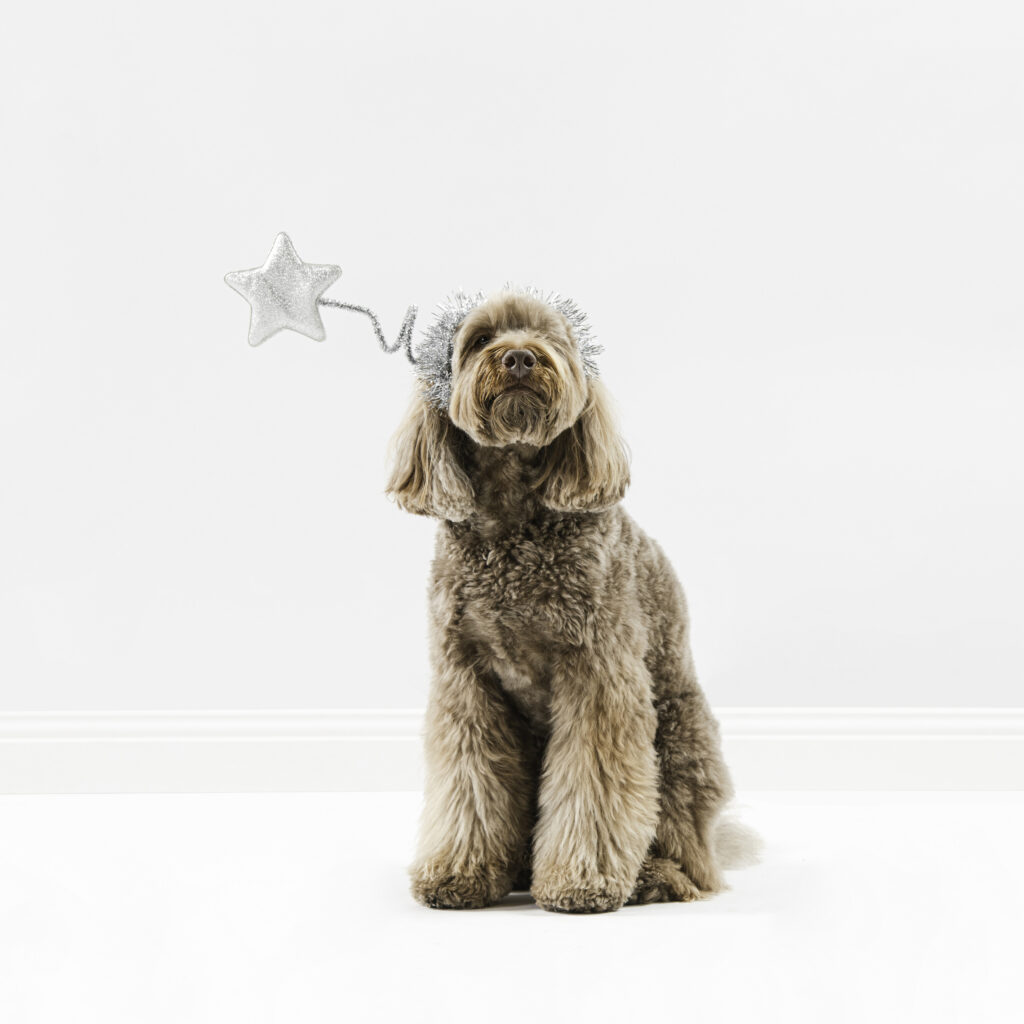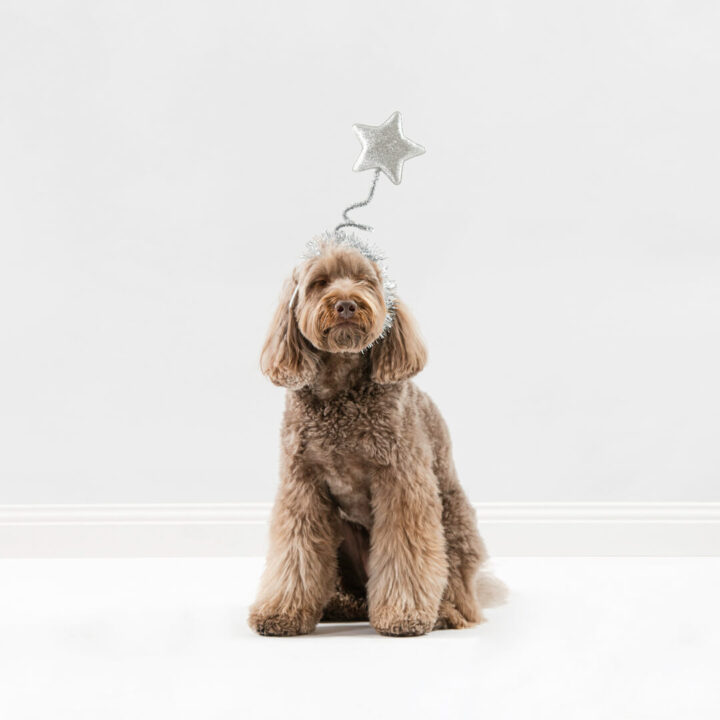Helping Pets Navigate the Festive Frenzy
Helping pets navigate the festive frenzy: how to reduce their stress
Christmas can be challenging for our furry friends. Various festive activities can impact our pets ‘ well-being, from the dangling decorations to the constant influx of visitors. Here’s how to help our pets navigate the festive frenzy and reduce their stress, so they can enjoy the holiday season too.
Reasons why Christmas can be stressful for pets:
- Change in their environment:
The sudden appearance of glittering or flashing lights, towering Christmas trees, and other festive decorations can be overwhelming for pets. Often, furniture is rearranged, dogs and cats are creatures of habit, and a sudden transformation in their living space can be very unsettling. - Loud Noises:
Fireworks, parties, loud music and group chatter at family gatherings can be stressful for pets. Their acute hearing can pick up on sounds that might be barely noticeable to us, leading to stress and discomfort. - Altered Routine:
Pets enjoy routine, and the holiday season often disrupts their regular schedule. These alterations can leave pets feeling anxious, from irregular feeding times to changes in walk schedules. - Increased Visitors:
While some pets love human interaction, many find the influx of guests overwhelming. The constant stream of unfamiliar faces and scents can trigger stress. - Unsafe Foods:
The abundance of festive treats sees many pets winding up at the veterinary clinic from indulging in harmful foods such as fatty foods, cooked bones, or chocolate.
Ways to reduce stress for your pets during the holiday season:
- Create a Safe Haven:
Designate a quiet and comfortable space where your pet can retreat when the festivities become too much. Equip this space with their favourite toys, blankets, and, if possible, white noise to drown out loud sounds. Don’t allow visitors to bother your pet while they are in this safe place. - Maintain Routine as Much as Possible:
Keep your pet’s routine as consistent as possible. Stick to regular walks and feeding times. Familiarity provides comfort and stability during times of change. - Introduce Decorations Gradually:
Instead of transforming your home overnight, introduce festive decorations gradually. Allow your pet to acclimate to the changes at their own pace, minimising stress associated with abrupt environmental shifts. - Educate Guests:
If you’re hosting gatherings, inform your guests about your pet and let them know any concerns in advance. If your pet is going to a quiet area, make sure they know not to bother your pet there. It’s important that any rules are explained to children and that young children are not left unsupervised with pets. - Be Mindful of Festive Treats:
Be vigilant about keeping potentially harmful foods out of reach. Chocolate, nuts, and other festive treats can be dangerous to pets, and children often leave their Christmas treats lying around. Consider preparing pet-friendly treats to include them in the festivities without jeopardising their health.
Here are some tasty and healthy treats for your dog, so they don’t feel like they’re missing out: the Houndztooth Training Treats are high-reward bite-sized treats, 100% natural with no artificial flavours, preservatives or colours. Choose from chicken, ocean trout, lamb and beef, whichever your dog loves most! Perfect for stocking-stuffers too.


